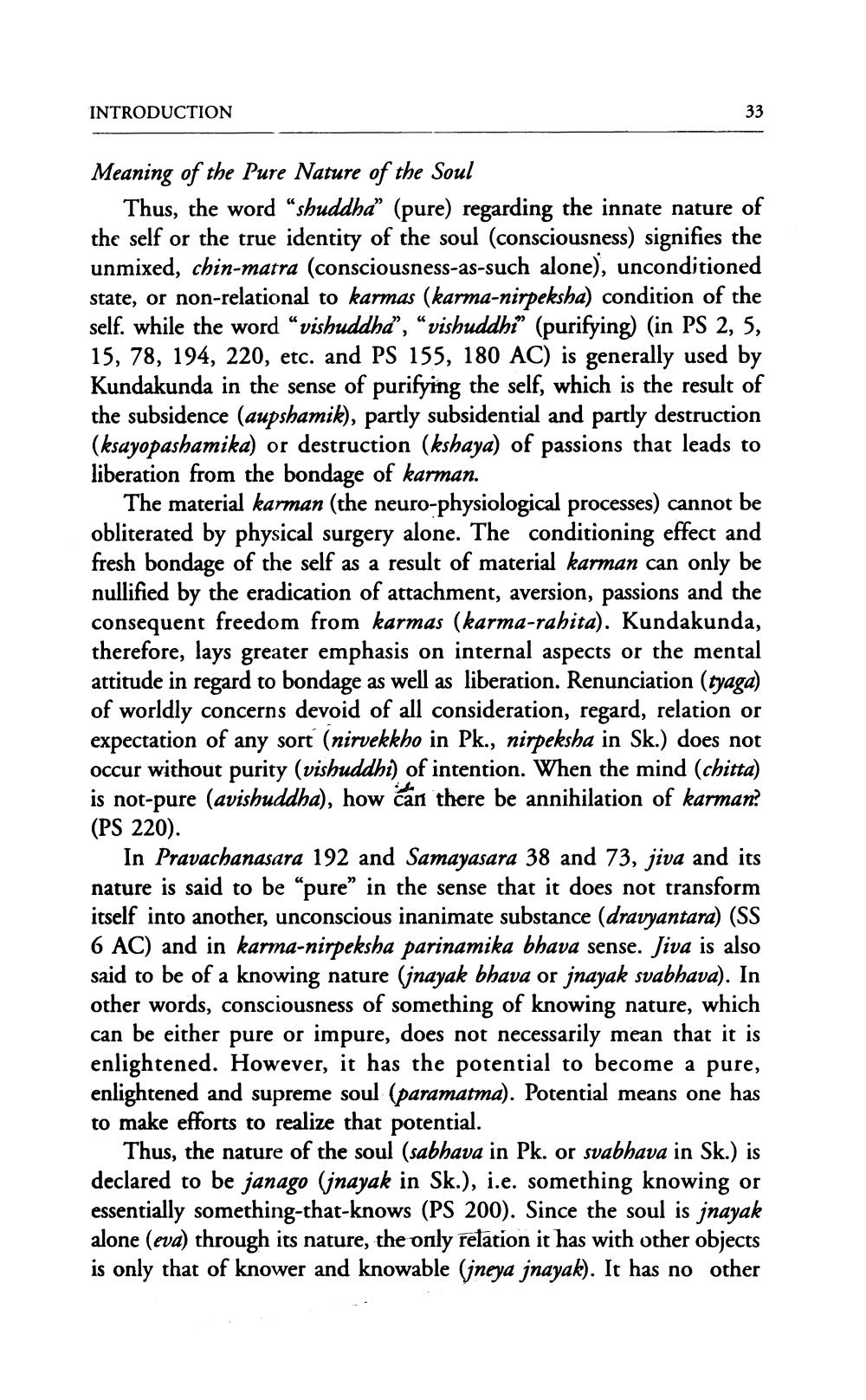________________
INTRODUCTION
33
Meaning of the Pure Nature of the Soul
Thus, the word “shuddha” (pure) regarding the innate nature of the self or the true identity of the soul (consciousness) signifies the unmixed, chin-matra (consciousness-as-such alone), unconditioned state, or non-relational to karmas (karma-nirpeksha) condition of the self. while the word “vishuddha”, “vishuddhi" (purifying) (in PS 2, 5, 15, 78, 194, 220, etc. and PS 155, 180 AC) is generally used by Kundakunda in the sense of purifying the self, which is the result of the subsidence (aupshamik), partly subsidential and partly destruction (ksayopashamika) or destruction (kshaya) of passions that leads to liberation from the bondage of karman.
The material karman (the neuro-physiological processes) cannot be obliterated by physical surgery alone. The conditioning effect and fresh bondage of the self as a result of material karman can only be nullified by the eradication of attachment, aversion, passions and the consequent freedom from karmas (karma-rahita). Kundakunda, therefore, lays greater emphasis on internal aspects or the mental attitude in regard to bondage as well as liberation. Renunciation (tyaga) of worldly concerns devoid of all consideration, regard, relation or expectation of any sort (nirvekkho in Pk., nirpeksha in Sk.) does not occur without purity (vishuddhi) of intention. When the mind (chitta) is not-pure (avishuddha), how can there be annihilation of karman? (PS 220).
In Pravachanasara 192 and Samayasara 38 and 73, jiva and its nature is said to be "pure” in the sense that it does not transform itself into another, unconscious inanimate substance (dravyantara) (SS 6 AC) and in karma-nirpeksha parinamika bhava sense. Jiva is also said to be of a knowing nature (inayak bhava or jnayak svabhava). In other words, consciousness of something of knowing nature, which can be either pure or impure, does not necessarily mean that it is enlightened. However, it has the potential to become a pure, enlightened and supreme soul (paramatma). Potential means one has to make efforts to realize that potential.
Thus, the nature of the soul (sabhava in Pk. or svabhava in Sk.) is declared to be janago (inayak in Sk.), i.e. something knowing or essentially something-that-knows (PS 200). Since the soul is jnayak alone (eva) through its nature, the only relation it has with other objects is only that of knower and knowable (jneya jnayak). It has no other




